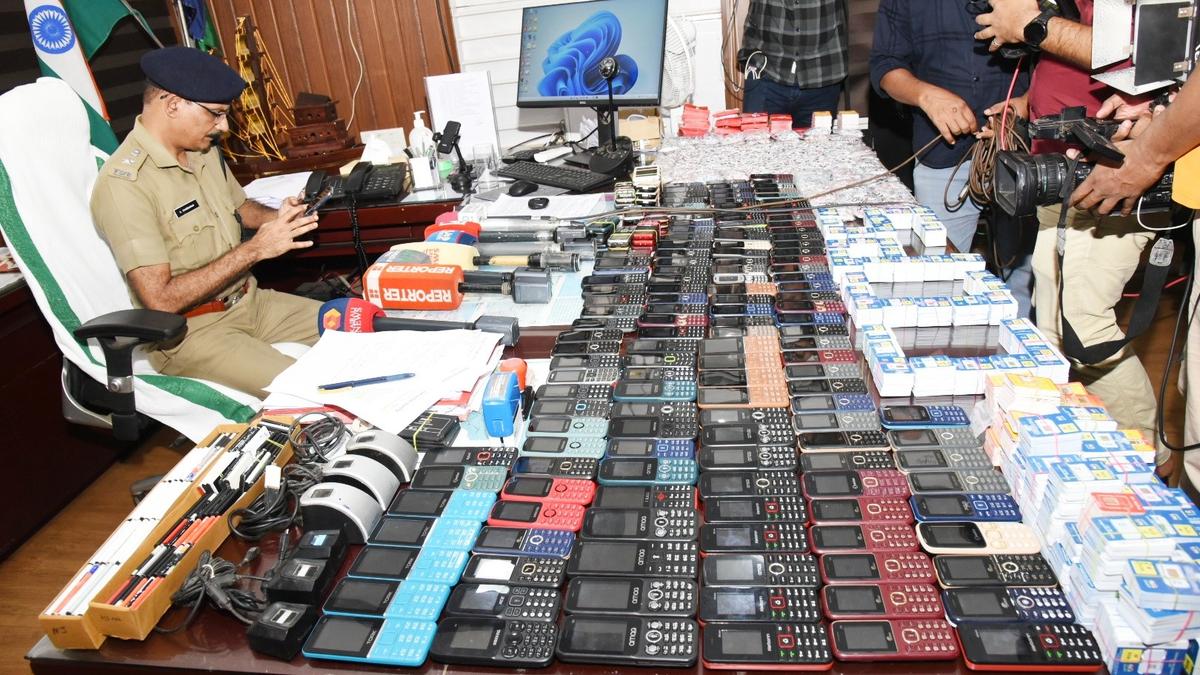
Cyber fraud: key accused arrested, 40,000 SIM cards recovered
The Hindu
Police arrest man supplying SIM cards to online fraudsters, recovering 40,000 SIM cards and 180 phones in cyber fraud case.
A police team investigating a cyber fraud case arrested a man reportedly involved in supplying mobile phone SIM cards to online fraudsters in the country. As many as 40,000 SIM cards of different mobile operators and 180 mobile phones were recovered from him.
Cyber Police Inspector I.C. Chitharanjan and team arrested Abdul Roshan, 46, hailing from Haranhalli in Karnataka, from a rented house at Madikeri. District Police Chief S. Sasidharan said Roshan was the kingpin of a cyber fraud group that cheated a man from Vengara of ₹1.08 crore.
Mr. Sasidharan said the group had cheated the man through a fake online share market. He was reportedly made to deposit cash in different bank accounts after being offered huge profits.
The police team zeroed in on Roshan using cyber technology and arrested him with the help of the Karnataka Police. He was found to have been collecting and using SIM cards in the names of different people without their knowledge. The SIM card used to cheat the Vengara man was in the name of a woman who was found to be unaware of such a SIM card in her name. The police said Roshan procured the SIM cards with the help of his friends in mobile shops by paying ₹50 a card.
He reportedly collected the biometric fingerprints of customers reaching mobile retail shops without their knowledge. The customers would be made to submit their fingerprints two or three times, and different SIM cards would be made in their names. Roshan allegedly distributed the SIM cards to fraudsters after activating them.

“Writing, in general, is a very solitary process,” says Yauvanika Chopra, Associate Director at The New India Foundation (NIF), which, earlier this year, announced the 12th edition of its NIF Book Fellowships for research and scholarship about Indian history after Independence. While authors, in general, are built for it, it can still get very lonely, says Chopra, pointing out that the fellowship’s community support is as valuable as the monetary benefits it offers. “There is a solid community of NIF fellows, trustees, language experts, jury members, all of whom are incredibly competent,” she says. “They really help make authors feel supported from manuscript to publication, so you never feel like you’re struggling through isolation.”

Several principals of government and private schools in Delhi on Tuesday said the Directorate of Education (DoE) circular from a day earlier, directing schools to conduct classes in ‘hybrid’ mode, had caused confusion regarding day-to-day operations as they did not know how many students would return to school from Wednesday and how would teachers instruct in two modes — online and in person — at once. The DoE circular on Monday had also stated that the option to “exercise online mode of education, wherever available, shall vest with the students and their guardians”. Several schoolteachers also expressed confusion regarding the DoE order. A government schoolteacher said he was unsure of how to cope with the resumption of physical classes, given that the order directing government offices to ensure that 50% of the employees work from home is still in place. On Monday, the Commission for Air Quality Management in the National Capital Region and Adjoining Areas (CAQM) had, on the orders of the Supreme Court, directed schools in Delhi-NCR to shift classes to the hybrid mode, following which the DoE had issued the circular. The court had urged the Centre’s pollution watchdog to consider restarting physical classes due to many students missing out on the mid-day meals and lacking the necessary means to attend classes online. The CAQM had, on November 20, asked schools in Delhi-NCR to shift to the online mode of teaching.









